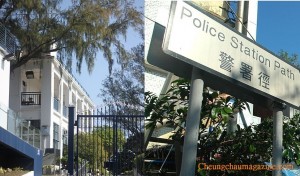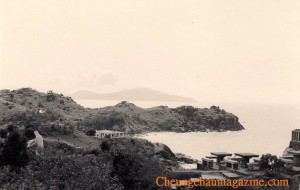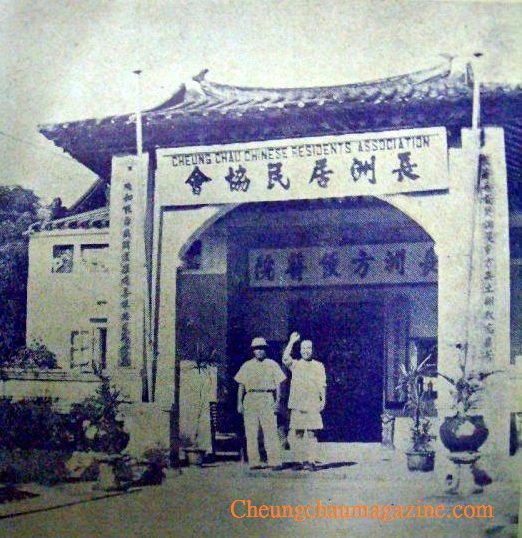1872 Jan 01
Cheung Chau Fong Bin Hospital, 1872
Cheung Chau Fong Bin Hospital, 1872
According to assessment report in 2009 from Antiquities and Monuments Office of Hong Kong Government :
“Cheung Chau Fong Bin Hospital was set up by Mr. Choi Leung , a merchant on the island.
His aim is to provide shelter to the homeless and sick and those perished in sea during typhoon. It was then expanded in 1915 by Cheung Chau Kai Fong.”
Based on the record from Land Registry of Hong Kong Lands Department, Cheung Chau Kai Fong, represented by Chu Fook, and Lo Chiu, and witnessed by Wong Wai Tsak Tong Manager, Wong Tsuen Ting ,on 5th of December in 1914, executed a deed of exchange of Cheung Chau Lot 340 with a parcel of land of 4,500 s.f.. from Colonial Government. It is Cheung Chau Lot 732 where Fong Bin Hospital now located.
This act caused then Assistant District Officer for New Territories South, Eric Hamilton, to comment on news of death of Chu Fook in report in 1921, of his great amount of work for Cheung Chau community.
It also led to him remark in his report in 1922 on death of Wong Tsuen Ting, Manager of Wong Wai Tsak Tong, of his and his predecessor’s appreciation for Wong’s continuous support and his capability in Cheung Chau community work.
Antiquities and Monuments Office also mentioned “Cheung Chau Fong Bin Hospital was mainly providing Chinese Medicine, and was under major renovation in 1931 and 1951 to cope with demand.
It was changed hand to Cheung Chau Residents Association in 1945, reputable Chinese medication practice was hired, visitors came as far as other outlying islands.”
But ever since 1934 when St John’s Ambulance opened Haw Par Hospital providing western medicine, Fong Bin Hospital was slowly fading away till complete abandon in 1988.
Right now the premises are in ruin, ownership is managed on temporary basis by Assistant District Officer for New Territories South.
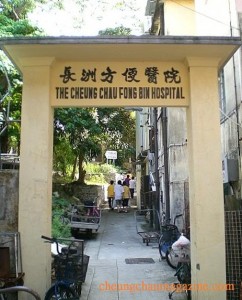 |
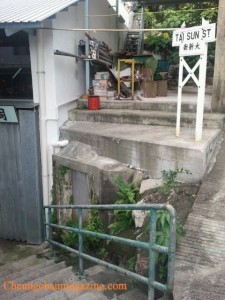 |
| Cheung Chau Fong Bin Hospital | Cheung Chau Fong Bin Hospital – Tai Sun Street |
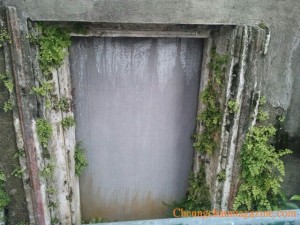 |
|
| Cheung Chau Fong Bin Hospital Donation plaque |
Please response to this post, your comment is important to us
Pirates attack on Cheung Chau Police Station. August 21st, 1912
1912 Aug 21
Hong Kong Colonial Government New Territories South Assistant District Officer, S H Peplow, recorded at mid night of August 21st 1912 , a group of 50 pirates in small boats landed in Cheung Chau near Police Station.
They went in to kill 3 Indian Police on duty, ransacked the station and took away HK$3,000 cash from the safe, together with all guns and ammunition.
The pirates went on to rob all shops and residences in neighbourhood.
One or two pirates died and some are also injured.
The piracy shocked Hong Kong and caused Cheung Chau Police Station to move in 1913-1914 to high ground from the shore, at current location in Police Station Path.
Cheung Chau Police Station
Please response to this post, your comment is important to us
Cheung Chau Peak European Reserve, 1920
1920 Jan 01
Around 1920’s, European started constructing weekend bungalows on Cheung Chau Peak area facing Hong Kong Island, but not on the other side of Cheung Chau due to malaria, according to then Assistant District Officer, Eric Hamilton, in his report.
Another Assistant District Officer of 1950’s, Paul Tsui, commented that he did not understand why the biggest landlords on the island, Wong Wai Tsak Tong, did not claim the area on the peak in Cheung Chau.
Before Second World War, nobody, except European, is allowed to own property or live on the Peak area of Cheung Chau.
This policy, however, was dropped not long after Second World War, along with cancellation of European Reserve on the peak on Hong Kong Island and in Tai Po.
Cheung Chau Peak
Click here to view the route map
Please response to this post, your comment is important to us
Cheung Chau Residents Association,1941
1941 Jan 01
Cheung Chau Residents Association is a relic from Second World War set up by Japanese army in the name of Greater East Asia Prosperity Circle.
Then Colonial Government in 1950′s stopped recognising this organisation due to big chaos in election of its official, according to Austin Coates, Assistant District Officer of New Territories South at the time.
Rivalry within Cheung Chau Residents Association caused the administration unable to transfer fund raised by leasing from Wong Wai Tsak Tong property for its operation, to proposed Cheung Chau Rural Committee, recorded by James Hayes, Assistant District Officer of New Territories South in 1960.
Worse still, James Hayes remarked, Cheung Chau Residents Association remained in control of management for Fong Pin Hospital, and transferred the dragon boat shed next to Pak Tei Temple to Dragon Boat Association.
Please response to this post, your comment is important to us, 5 responses so far
Cheung Chau Rural Committee ,1960
1960 Jan 01
Cheung Chau Rural Committee 1960
Austin Coates , Assistant District Officer of New Territories South of Colonial Government of Hong Kong recorded in 1950’s that then Government recognised Cheung Chau Residents Association as the only official organisation to represent Cheung Chau interest.
Cheung Chau Residents Association is the relic from Second World War set up by Japanese Army in the name of Greater East Asia Prosperity Circle.
For the sake of smooth administration of Cheung Chau after the war, British military allowed it unchanged and keep its organisation as well as its name.
Up until early 1950’s, Government stopped recognising this organisation and cut off communication with it after a big chaos in election of its official.
Then Colonial Government was planning to set up a new official body called Cheung Chau Rural Committee, and to transfer the fund raised by leasing from Wong Wai Tsak Tong’s properties for its operation to be managed by Cheung Chau Rural Committee.
The Government, however, took quite a few years till 1960 to complete the setting up of Cheung Chau Rural Committee.
In between, Cheung Chau Chamber of Commerce took over the job of liaison with Government.
Please response to this post, your comment is important to us
The number of posts displayed per page : 5



